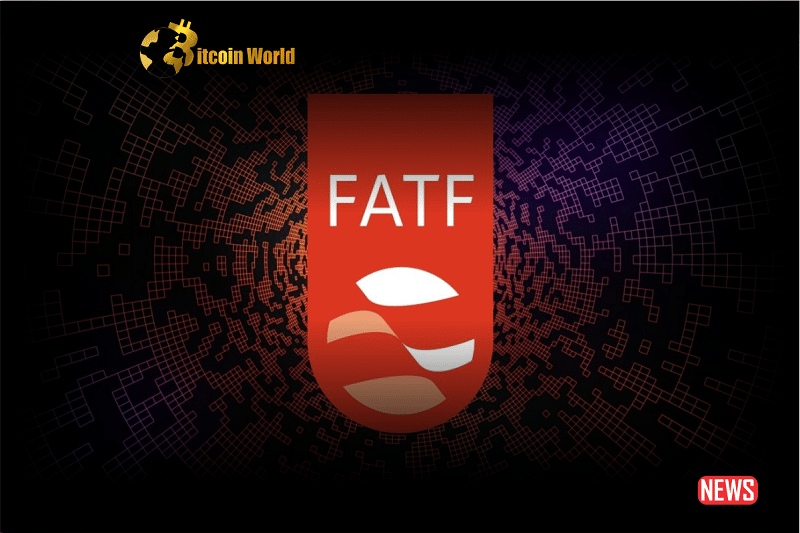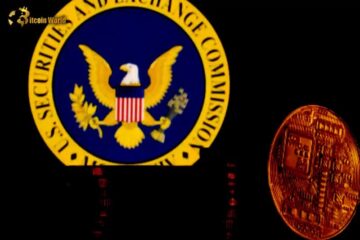
The Financial Action Task Force (FATF) has issued a renewed call for countries to implement the “travel rule” as part of efforts to combat money laundering and terrorism financing enabled by cryptocurrencies. FATF emphasizes the need for prompt action to close regulatory loopholes.
The Financial Action Task Force (FATF), an international body focused on combating money laundering and terrorism financing, has urged countries to implement the “travel rule” to address illicit activities facilitated by cryptocurrencies. In a recent statement, FATF highlighted the need for more progress made by many member states in implementing this rule.
According to FATF, “more than half” of the respondents in a survey admitted to taking no action to implement the Travel Rule, a crucial requirement to prevent funds from being transferred to sanctioned individuals or entities. This failure to act allows criminals to exploit significant regulatory loopholes.
FATF has emphasized the urgent need for countries to swiftly implement anti-money laundering (AML) and counter-terrorism financing (CTF) measures in relation to crypto-related activities. This is crucial in preventing criminals from taking advantage of unregulated aspects of the cryptocurrency space.
In a survey conducted in March 2022, FATF found that only 29 out of 98 jurisdictions had met the requirements set forth by the travel rules. Enforcement of these requirements was even more limited, with only a small subset of jurisdictions taking action.
The travel rule, introduced by FATF in June 2019 and last updated in June 2022, addresses the anonymity of illicit cryptocurrency transactions. In their recent meetings, FATF members agreed to further updates to the rules.
FATF announced the release of a report on June 27, urging member countries to implement its recommendations to close regulatory loopholes that criminals exploit. The report will also highlight North Korea’s alleged involvement in illicit virtual asset activities, where stolen funds are reportedly channeled into the country’s Weapons of Mass Destruction program.
Additionally, the report will discuss emerging risks associated with stablecoins, decentralized finance, non-fungible tokens (NFTs), and peer-to-peer transactions, shedding light on the need for regulatory measures to address these potential avenues for illicit activities.
FATF’s call to implement the “travel rule” underscores the importance of regulatory measures to combat cryptocurrency-enabled money laundering.
Central Bank Digital Currencies: The Future Blueprint for
Blockchain Company Metatime Successfully Completes Its Presale Rounds
- SEO Powered Content & PR Distribution. Get Amplified Today.
- PlatoData.Network Vertical Generative Ai. Empower Yourself. Access Here.
- PlatoAiStream. Web3 Intelligence. Knowledge Amplified. Access Here.
- PlatoESG. Automotive / EVs, Carbon, CleanTech, Energy, Environment, Solar, Waste Management. Access Here.
- BlockOffsets. Modernizing Environmental Offset Ownership. Access Here.
- Source: https://bitcoinworld.co.in/fatf-calls-for-implementation-of-travel-rule-to-combat-cryptocurrency-enabled-money-laundering/
- 000
- 100
- 2019
- 2022
- 26
- 27
- 98
- a
- Accounts
- act
- Action
- activities
- address
- addresses
- admitted
- ADvantage
- allows
- also
- AML
- an
- and
- announced
- Anonymity
- anti-money laundering
- ARE
- as
- aspects
- asset
- associated
- Bank
- being
- Bitcoin
- BitcoinWorld
- body
- by
- call
- calls
- close
- CO
- combat
- company
- completes
- conducted
- countries
- Criminals
- crucial
- cryptocurrencies
- cryptocurrency
- ctf
- currencies
- Currency
- decentralized
- Decentralized Finance
- digital
- digital currencies
- discuss
- efforts
- emerging
- emphasized
- emphasizes
- enabled
- enforcement
- entities
- ETF
- even
- Exploit
- facilitated
- Failure
- far
- FATF
- finance
- financial
- financial action task force
- financing
- focused
- For
- force
- forth
- from
- funds
- further
- future
- had
- has
- Highlight
- Highlighted
- HTTPS
- hype
- illicit
- implement
- implementation
- implementing
- importance
- in
- individuals
- International
- into
- introduced
- involvement
- Is
- issued
- ITS
- june
- jurisdictions
- last
- laundering
- light
- Limited
- made
- many
- March
- mass
- measures
- meetings
- member
- Members
- met
- money
- Money Laundering
- more
- need
- NFTs
- no
- non-fungible
- non-fungible tokens
- North
- of
- on
- only
- or
- out
- part
- peer-to-peer
- Peer-to-Peer Transactions
- plato
- plato data intelligence
- platodata
- platogaming
- potential
- prevent
- preventing
- Program
- Progress
- recent
- recommendations
- regulatory
- relation
- release
- report
- requirement
- Requirements
- respondents
- risks
- Rule
- rules
- set
- significant
- small
- Space
- Stablecoins
- Statement
- States
- stolen
- successfully
- Survey
- swiftly
- tag
- taking
- task
- task force
- Terrorism
- than
- that
- The
- The Future
- their
- These
- this
- to
- Tokens
- Transactions
- transferred
- travel
- underscores
- unprecedented
- updated
- Updates
- urgent
- urging
- Virtual
- was
- weapons
- where
- will
- with
- zephyrnet










